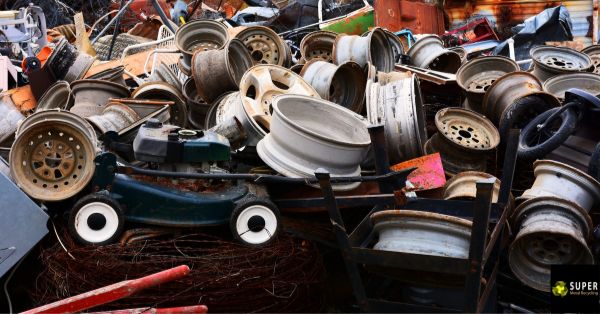In Melbourne’s ever-evolving landscape of sustainability and environmental consciousness, the scrap metal recycling industry remains at the forefront of positive change. As technology advances and global awareness of recycling grows, Melbourne’s scrap metal recycling trends are constantly adapting to meet new challenges and opportunities. In this blog, we’ll explore the latest trends shaping the world of scrap metal recycling in Melbourne.
1. Technological Advancements
One of the most significant trends in scrap metal recycling is the integration of cutting-edge technology. Innovations in sorting and processing equipment have improved the efficiency and accuracy of metal recovery. Melbourne’s recycling centers are increasingly using automated systems, robotics, and advanced sensors to streamline operations and boost recycling rates.
2. Data-Driven Recycling
Data analysis is transforming the way Melbourne’s recycling centers operate. By harnessing the power of data, recycling facilities can optimize their processes, reduce waste, and identify areas for improvement. This trend allows for more precise tracking of materials, leading to better resource management and more sustainable practices.
3. Circular Economy Initiatives
Melbourne is embracing the concept of a circular economy, where products and materials are designed to be reused, refurbished, or recycled. This shift in mindset encourages manufacturers to create products with recycling in mind. By closing the loop on materials, Melbourne aims to reduce waste and conserve resources.
4. Sustainable Transportation
Transportation plays a crucial role in the scrap metal recycling process. Melbourne’s recycling centers are increasingly adopting sustainable transportation practices, such as using electric or hybrid vehicles for collection and delivery. This not only reduces emissions but also showcases a commitment to environmental responsibility.
5. Community Engagement
Scrap metal recycling in Melbourne is not limited to industry professionals; it also involves the community. Local residents are encouraged to participate actively in recycling efforts. This trend fosters a sense of environmental responsibility and strengthens the bond between Melbourne’s residents and its recycling infrastructure.
6. E-Waste Recycling
With the proliferation of electronic devices, electronic waste (e-waste) is a growing concern. Melbourne is responding by expanding its e-waste recycling initiatives. This trend ensures that valuable materials like copper and gold are recovered from discarded electronics while hazardous components are disposed of safely.
7. Collaboration and Partnerships
Melbourne’s scrap metal recycling industry is forging partnerships with businesses, organizations, and government agencies to enhance sustainability efforts. Collaborative initiatives are helping Melbourne achieve its recycling goals more effectively and efficiently.
8. Green Certifications
Recycling centers in Melbourne are increasingly seeking green certifications to demonstrate their commitment to sustainability. These certifications not only promote responsible recycling practices but also build trust with consumers and businesses looking to recycle their scrap metal responsibly.
Conclusion
Melbourne’s scrap metal recycling industry is dynamic and forward-thinking, continuously evolving to meet the challenges of a changing world. From embracing technology and data-driven practices to promoting a circular economy and engaging the community, these trends are helping Melbourne become a more sustainable and environmentally responsible city. As these trends continue to shape the future of scrap metal recycling, Melbourne is well-positioned to lead the way in responsible waste management and resource conservation.
If you are at Noble Park, Victoria 3174, below is the best way to visit us.
Super Metal Recycling
345 Frankston – Dandenong Road, Dandenong South VIC 3175
(03) 9706 4909
* Find us on Google Map


Recent Comments